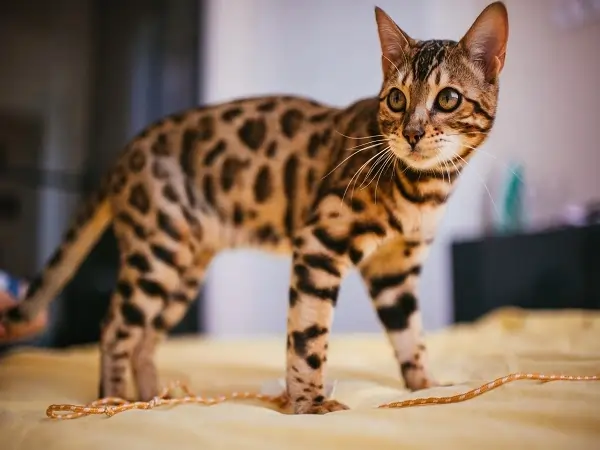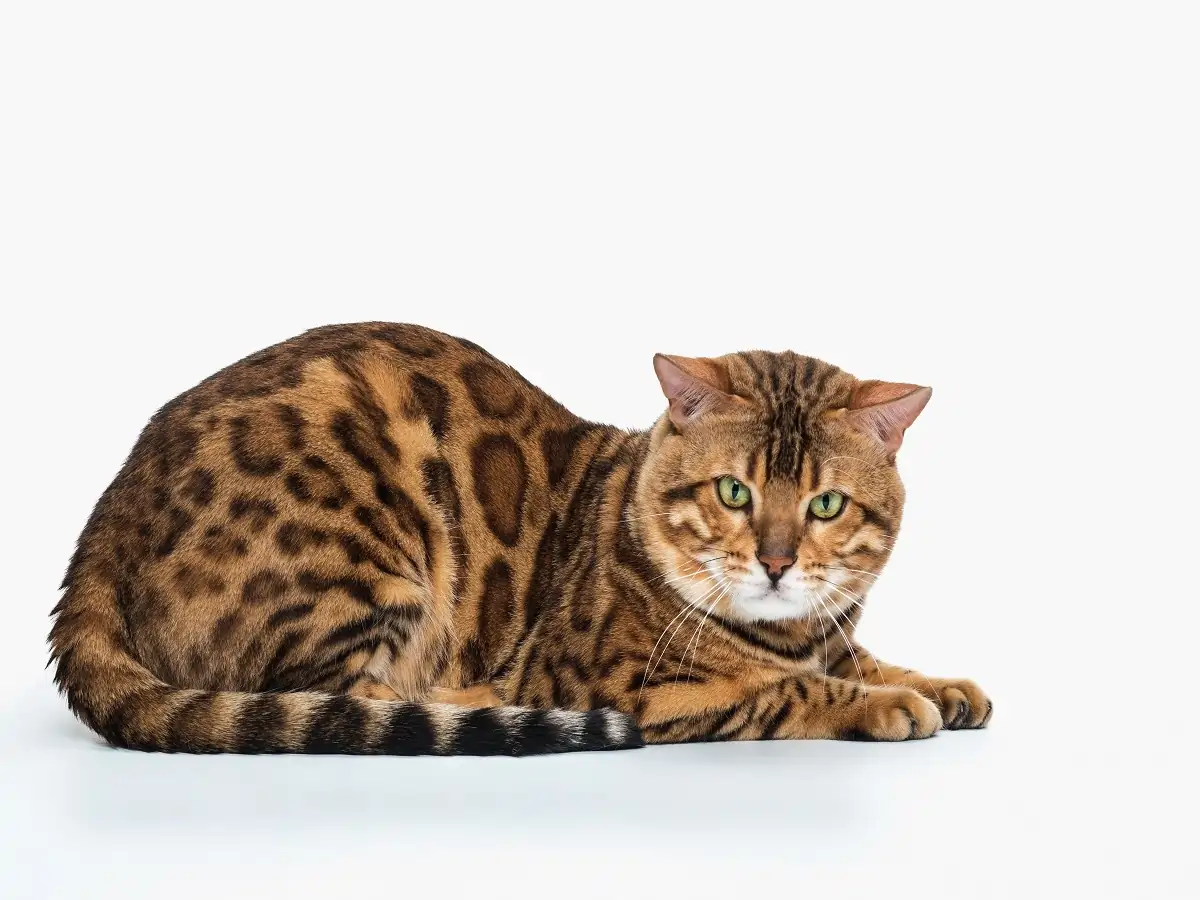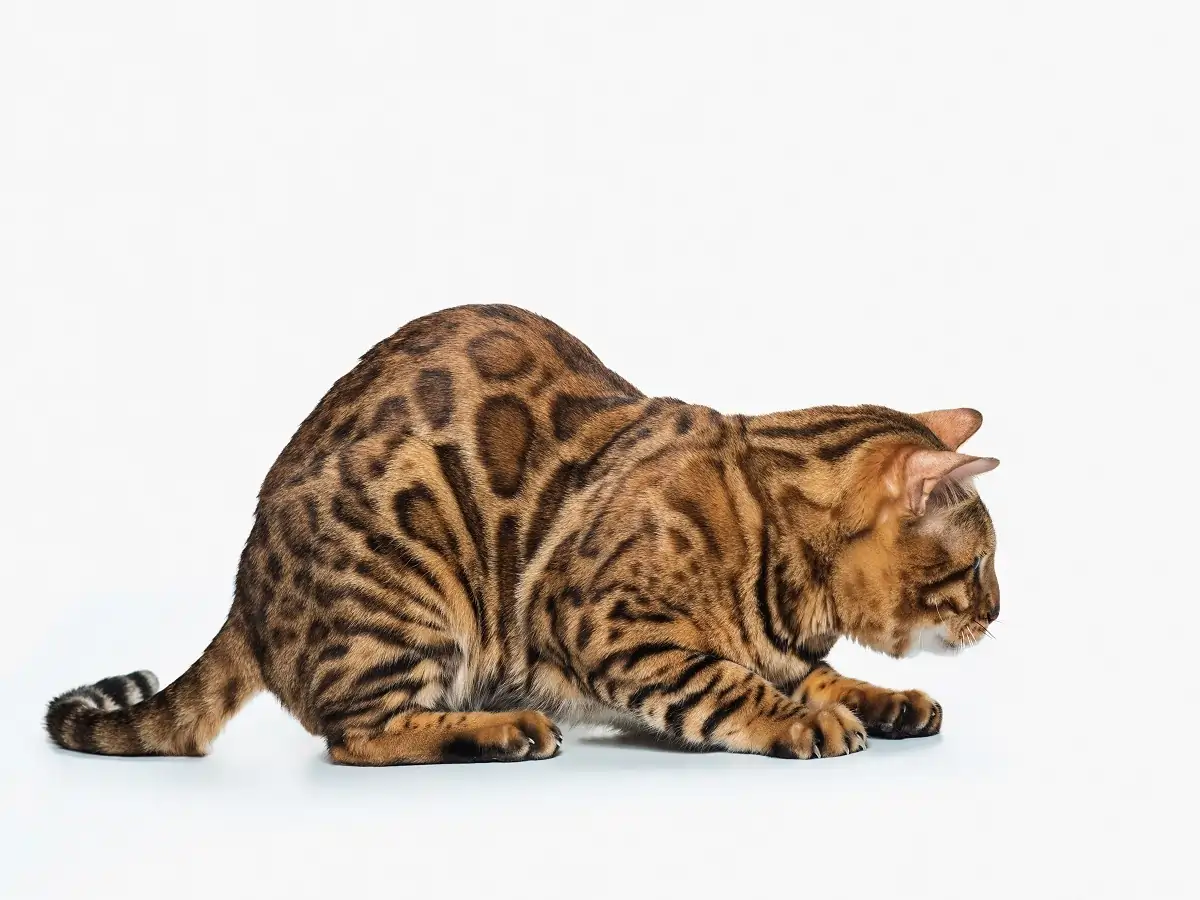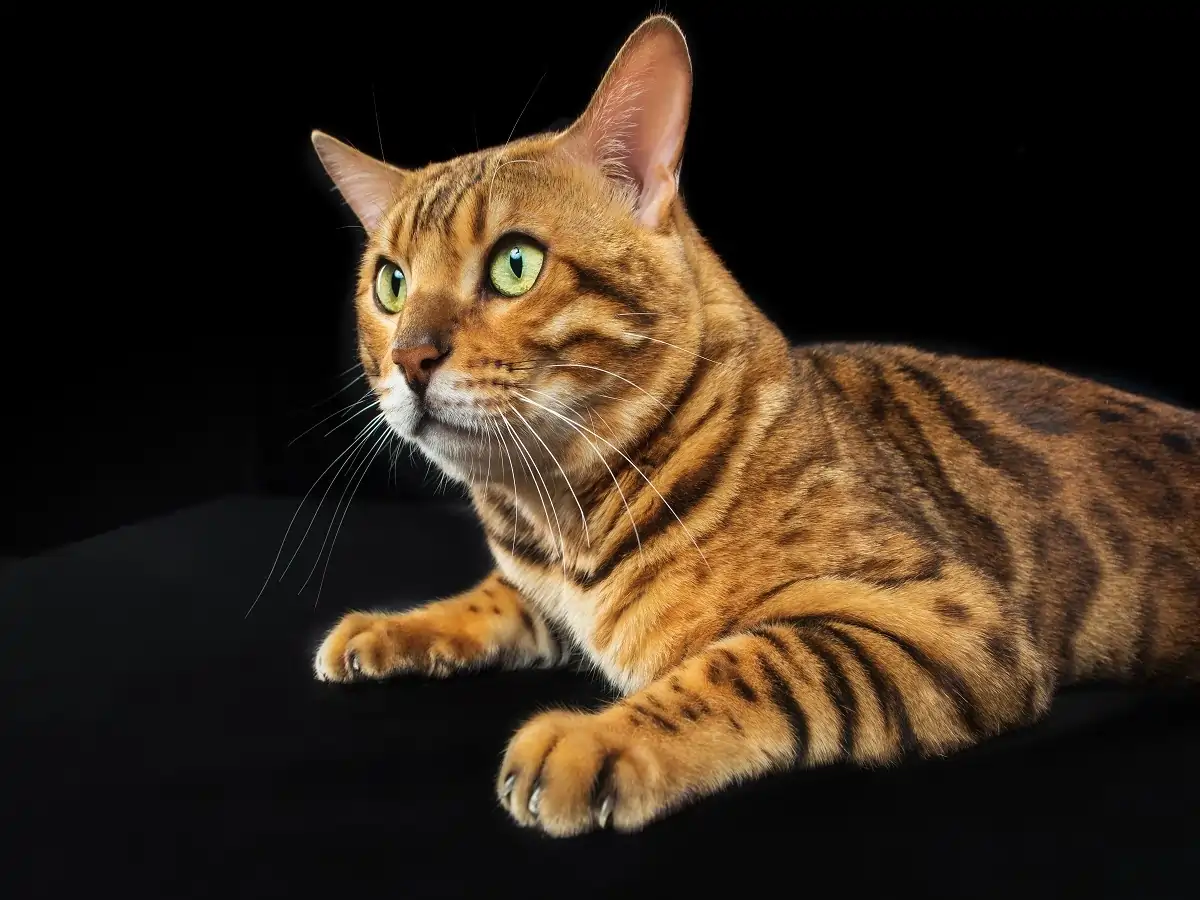Bengal cats are known for their beautiful spots and playful energy. They look like little leopards and are very active, making them popular with cat lovers. These cats are special because they are a mix of regular house cats and wild Asian leopard cats. However, not everyone is allowed to have a Bengal cat. In some places, owning Bengal cat is against the law or comes with strict rules. In this blog we will explains why there are such rules and why some areas don’t let people keep Bengal cats.
Table of Contents
ToggleOrigin and History of Bengal Cats
Bengal cats are an interesting breed because they look wild and have lively personalities. They get their unique look from being a mix between regular house cats and small, wild Asian leopard cats. This mix gives Bengal cats their special spotted or marbled fur, which looks like their wild ancestors’ coats.
The breed started in the 1960s with Jean Mill, an American breeder. She wanted to create a cat that had the beauty of a wild cat but acted like a friendly pet. The first Bengal cat was bred in 1963 when Mill successfully crossed an Asian leopard cat with a domestic cat, aiming to combine the best traits of both species. The first generations, called F1 (first generation), kept many wild traits, like being shy and sometimes distant.
As breeding continued, later generations (F2, F3, etc.) were mixed with domestic cats to make them friendlier while keeping their exotic look. By the 1980s, Bengal cats became popular and started appearing in cat shows. They were officially recognized by The International Cat Association (TICA) in 1983, a big step for the breed.
Today, Bengal cats are loved by many for their beautiful appearance, intelligence, and playful nature. But because they are part wild, there are legal issues with owning them in some places. Knowing the history of Bengal cats helps explain why there are specific rules and restrictions for owning these unique pets.
Legal Status of Bengal Cats
Bengal cats have different rules depending on where you are. Some places welcome them, but others have rules and limits. To understand these rules, we need to look at how different areas handle Bengal cat ownership.
Regions with Restrictions or Bans
In some places, Bengal cats have strict rules or are banned because of worries about their wild roots and how they might affect the local environment. Here are some areas with restrictions:
- Australia: You can’t bring Bengal cats into the country, but you can own them if they are later-generation Bengals.
- United Kingdom: Early-generation Bengals might need special permits.
- United States: Rules vary by state. For example, in New York City, Bengal ownership is not allowed, but in Georgia, you need a permit.
- New York City: Bengals cat is restricted.
- Hawaii: Bengals are banned.
- Georgia: Bengals require permits for ownership.
- Massachusetts: Ownership of early-generation Bengals (F1 to F4) is restricted without special permits.
- Singapore: Bengal cats are not allowed.
- New Zealand: Bringing Bengal cats here is controlled, and only later-generation Bengals are allowed.
- Norway: They have strict rules, especially for early-generation Bengals. You might need special permission to own one.
- United Arab Emirates (UAE): They also have rules for exotic pets, including Bengals. Early-generation Bengals might need special permission.
- Japan: It is okay to have Bengal cats, but early-generation Bengals might need special permission.
- Turkey: Like other countries, Turkey has rules for hybrid animals, which include Bengals, especially the early ones.
- South Africa: Bengal cats are okay, but bringing in early-generation Bengals might be restricted because of exotic animal rules.
- Alberta and Manitoba (Canada): These places have rules about owning hybrid cats like Bengals.
- Belgium: Bengal cats are allowed, but early-generation Bengals might need special permission or face restrictions.
These are just a few examples. Laws about Bengal cats differ a lot depending on where you are. They are often made to keep people safe and protect the environment and the cats themselves.
Reasons for Legal Restrictions: Why Are Bengal Cats Illegal
The rules about Bengal cats are because people worry about how they are a mix of wild and domestic cats and how they might affect the environment and people’s safety. Understanding these reasons helps us see why some places have rules about owning Bengal cats.
1. Wild Ancestry and Hybrid Status
Bengal cats come from mixing regular cats with a small wild cat called the Asian leopard cat. This mix gives Bengal cats their unique look and some behaviors similar to wild cats. But because they have some wild traits, especially in the early generations like F1 to F4, they might be harder for new owners to handle. So, some places have rules about owning these early-generation Bengals to keep both the cats and their owners safe.
2. Behavioural Concerns
Bengal cats are lively and smart pets. They need lots of attention and fun things to do to stay happy. If they get bored, they might start doing weird things like scratching furniture or making a lot of noise like growling etc. In places where Bengal cats have rules, these behaviours are considered. They want to make sure owners can handle them well.
3. Conservation and Environmental Concerns
Bringing Bengal cats into new places, especially where nature is delicate, can cause worries about keeping the environment safe. Bengal cats are a mix of wild and domestic cats, and they might start hunting if they get loose. This could be bad for local animals and nature. To protect the environment, some areas have rules about owning Bengal cats.
4. Public Safety
While Bengal cats are usually friendly to people, some of the early ones might act a bit wild. If they are not trained well or don’t get used to being around people, they could cause problems, especially in busy cities. To keep everyone safe, some places have rules about owning Bengal cats. These rules might mean needing special permission or not being allowed to have certain kinds of Bengals. It is all about making sure the cats, the environment, and people are looked after.
How to Legally Own a Bengal Cat
Getting a Bengal cat can make you really happy, but it is important to know the rules. Here is a simple guide on how to legally get one:
1. Understanding Local Laws
Before bringing a Bengal cat into your home, it is crucial to research and understand the legal requirements in your area regarding exotic or hybrid animal ownership. Check with local authorities, animal control agencies, or breed-specific organizations to determine the regulations that apply to Bengal cats in your jurisdiction.
2. Permits and Licensing
If you want to own a Bengal cat in places where there are rules about it, you usually need special permission first. This means you have to ask for permission, show that you have a good place for the cat to live, and pay a fee. You have to follow certain rules from the local government to make sure you’re allowed to have the cat legally.
3. Compliance with Breed-Specific Regulations
Some places have rules about Bengal cats, especially the early generations (F1 to F4). These rules might say who can have them, breed them, or sell them. Make sure you know and follow these rules to avoid getting in trouble.
4. Responsible Ownership
Taking care of Bengal cats properly means more than just following the rules. You need to make sure they are happy and healthy. Here are some tips:
- Make sure they have lots of things to do and space to play.
- Take them to the vet regularly and give them their shots.
- Spend time training and playing with them so they behave well.
- Keep them safe indoors or in a fenced area outside.
- Learn about how to take care of Bengal cats so you can do your best for them.
If you follow the rules and take good care of your Bengal cat, you will enjoy their company while helping them and your community. If you have questions about owning a Bengal cat, ask local authorities or trusted breeders for help.
Final Words
In conclusion, the rules about owning Bengal cats are made because they are a mix of different cats and could affect the environment and people’s safety. The rules change depending on where you live, and some places are strict, especially about the early generations of Bengal cats. It is important for people thinking about getting a Bengal cat to know and follow the local laws. By learning the rules and being a responsible owner, you can enjoy having a Bengal cat while also helping them and your community. Following the rules not only keeps Bengal cats safe but also makes for a good relationship between people and these special cats, making life better for everyone.










